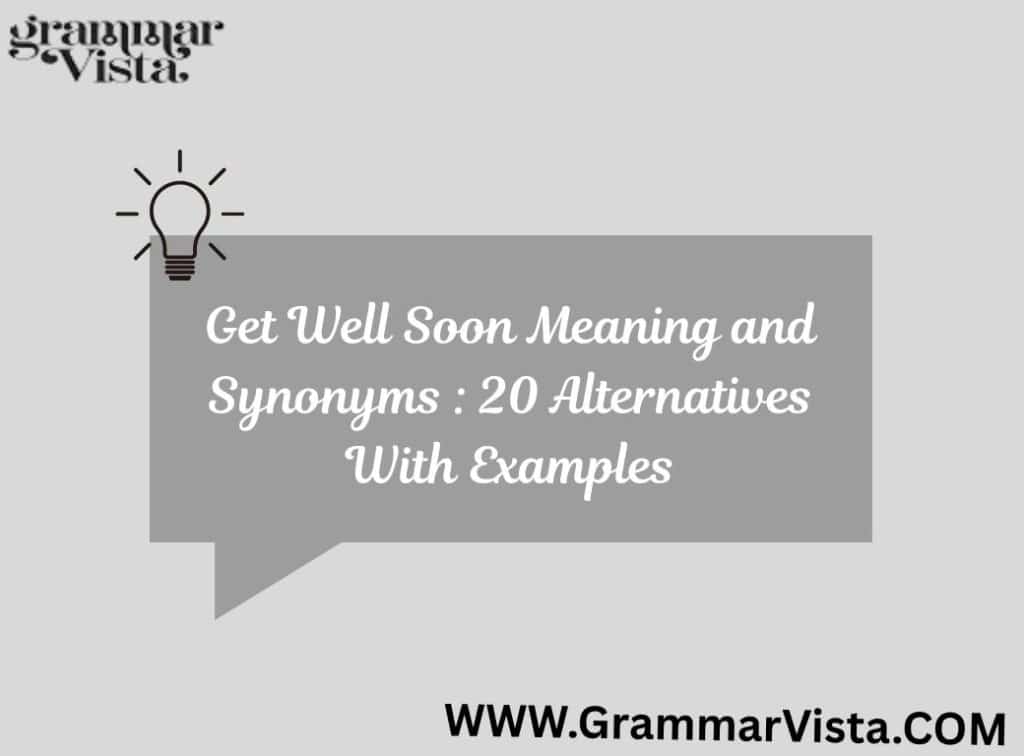Did you know that overusing phrases like “I agree” can make your conversations sound monotonous? Effective communication is key to building rapport, and varying your expressions of agreement can significantly impact how your message is received. In this guide, we’ll dive into 20 creative alternatives to saying “I agree with you,” complete with examples to illustrate each one. You’ll walk away equipped with fresh phrases that can elevate your discussions and make them more memorable.
What Does “I Agree with You” Mean?
When someone says, “I agree with you,” it’s more than just a simple affirmation; it’s a nuanced way of affirming that you share or understand someone’s viewpoint, feelings, or stance on a topic. This phrase serves as a bridge in communication, fostering connection and mutual respect. It can be a powerful tool in discussions, signaling alignment and also an invitation to delve deeper into the subject matter.
When to Use “I Agree with You”?
Using “I agree with you” can be a powerful tool in communication, but timing and context are crucial. In work discussions, this phrase can fit seamlessly into conversations when acknowledging a colleague’s idea or strategy. However, it’s essential to ensure that your agreement adds value — consider elaborating on the points you align with or suggesting enhancements to demonstrate deeper engagement.
Is It Professional or Polite to Say “I Agree with You”?
Saying “I agree with you” can often be perceived as a straightforward affirmation, but the implications of this phrase stretch beyond mere consent. In professional settings, expressing agreement can foster collaboration and strengthen relationships. But, it’s crucial to consider the context and tone in which it is conveyed.
A simple “yes” may come off as dismissive if not accompanied by further elaboration or acknowledgment of the other person’s viewpoint. To avoid this pitfall, consider following up with specific reasons for your agreement or how their ideas resonate with your own experiences.
I Agree with You Synonyms:
- I see where you’re coming from.
- I couldn’t agree more.
- You’re right.
- I feel the same way.
- I’m with you on that.
- You took the words right out of my mouth.
- I’m on the same page.
- That makes total sense to me.
- Exactly!
- I’m in complete agreement.
- I think you’re spot on.
- You hit the nail on the head.
- I get that.
- Couldn’t have said it better myself.
- I feel the same way.
- That’s exactly how I feel.
- Preach!
- I’m all for it.
- Yes, I agree.
- Right on.
I see where you’re coming from.
Meaning/Explanation: When you say, “I see where you’re coming from,” it’s more than just a polite nod to the other person’s ideas; it’s an invitation to deeper understanding. This phrase conveys your agreement and also highlights your willingness to engage with the emotional landscape of their viewpoint. By acknowledging their perspective, you create a bridge of empathy that fosters open dialogue.
Using this expression reinforces a collaborative spirit. It demonstrates that you’re not merely agreeing on the surface but genuinely valuing the nuances of their argument. This approach can transform conversations into constructive discussions, allowing both parties to feel heard and validated.
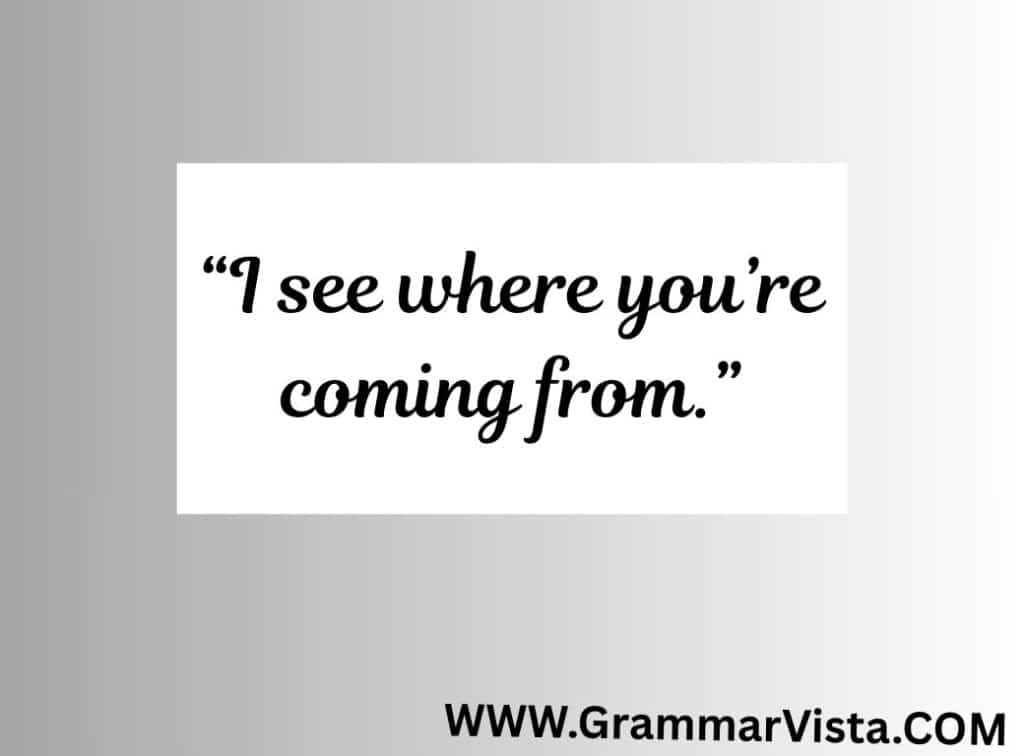
Example: If a colleague argues for prioritizing quality over quantity in a project, responding with this phrase signals that you recognize the importance of their stance and are ready to explore it further together.
I couldn’t agree more.
Meaning/Explanation: When you say, “I couldn’t agree more,” you’re expressing complete and wholehearted agreement that goes beyond mere acknowledgment. This phrase serves as a powerful affirmation of shared sentiments, emphasizing not just your concurrence but also the strength of your feelings. It’s a way to convey that the other person’s point resonates with you on a deep level, reinforcing the connection between both parties.
Example: In a discussion about sustainable practices, if someone passionately outlines the importance of reducing plastic use, responding with “I couldn’t agree more” signals that you are on the same page and are also equally invested in the cause. This phrase can foster a collaborative atmosphere, inviting further dialogue and exploration of ideas.
You’re right.
Meaning/Explanation: This phrase affirms the correctness of the other person’s opinion and fosters a sense of collaboration in the conversation. By acknowledging their insight, you create an atmosphere where both parties can build on shared ideas rather than simply asserting your own perspective. It’s a powerful way to validate someone’s thoughts, encouraging a deeper dialogue that can lead to more nuanced discussions.
Example: In a team meeting where a colleague suggests a new strategy for a project, responding with “You’re right” can reinforce their confidence and inspire further contributions from others. It transforms the dynamic from one of confrontation to one of unity, allowing for a more productive exchange of ideas. This simple affirmation helps in cultivating a culture of respect and openness, essential for any successful collaboration.
I feel the same way.
Meaning/Explanation: When someone expresses a concern or feeling that resonates deeply with us, saying “I feel the same way” can create an immediate sense of emotional alignment. This phrase transcends mere agreement; it emphasizes a shared experience that can foster a stronger connection between individuals. This expression is particularly effective in personal discussions where vulnerability plays a key role.
Example: In a conversation about the pressures of work-life balance, responding with “I feel the same way” validates the speaker’s emotions and also opens the door for a deeper dialogue about coping strategies and mutual support.
You took the words right out of my mouth.
Meaning/Explanation: “You took the words right out of my mouth” is i agree synonym that implies you were thinking the same thing. It expresses agreement and also a sense of synchronicity with the speaker. This response can be particularly effective in discussions where emotions and passions run high, as it fosters a feeling of camaraderie and shared perspective. By acknowledging that someone has articulated your own thoughts, you create an atmosphere of mutual respect and understanding.
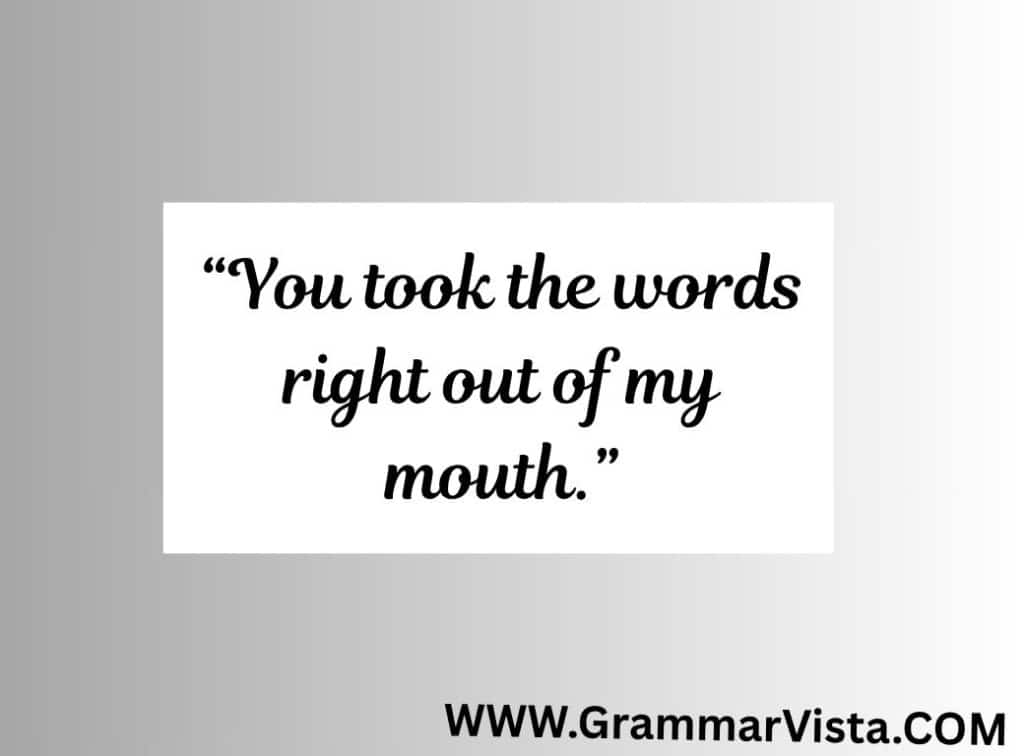
Example: If someone declares, “This is the perfect time for a vacation,” responding with this phrase reinforces that you agree and are equally enthusiastic about the idea.
I’m with you on that.
Meaning/Explanation: When someone shares an opinion that resonates with you, a simple phrase like “I’m with you on that” can effectively confirm your agreement. This casual expression conveys support and also fosters a sense of camaraderie. Using laid-back expressions can make conversations feel more relatable and less formal, encouraging a genuine exchange of ideas. This approach is particularly valuable in collaborative environments, where teamwork thrives on shared beliefs and mutual understanding.
Example: If a colleague mentions, “Working from home has its perks,” responding with, “I’m with you on that,” affirms their viewpoint and also opens the door for further discussion about the benefits of remote work. Such phrases can create an inviting atmosphere where everyone feels comfortable sharing their thoughts.
I’m on the same page.
Meaning/Explanation: When you say, “I’m on the same page,” you convey a shared understanding or perspective that fosters collaboration and unity. This expression is particularly effective in group settings, whether in a brainstorming session or during a team meeting, as it reinforces the idea that everyone is aligned in their thoughts and goals.
Using this phrase can deepen relationships by promoting an atmosphere of trust and camaraderie. It shows that you value the input of others and are willing to work together toward a common objective.
Example: When a colleague presents a new strategy and you respond with, “I’m on the same page,” it validates their ideas and also encourages open dialogue and further exploration of the topic.
That makes total sense to me.
Meaning/Explanation: That makes total sense to me is a phrase that elegantly validates that you understand and accept the reasoning behind what was said. Using this expression is particularly effective in collaborative environments, as it fosters a culture of open dialogue and mutual respect. By emphasizing your agreement in such a constructive way, you invite further discussion and encourage others to share their insights.
Example: If someone suggests, “We should focus on one project at a time for better results,” responding with this phrase affirms their perspective and also acknowledges the clarity of their thought process. It shows that you are engaged in the conversation and appreciate the logical foundation of their argument.
Exactly!
Meaning/Explanation: “Exactly!” serves as a concise way to express full agreement, packing a punch with its simplicity and clarity. When you respond with this word, you’re not just affirming someone’s statement; you’re also enhancing the conversation by signaling your alignment in thought.
This response can be particularly powerful in discussions where nuance matters. By using “Exactly!”, you signal your agreement and also your enthusiasm for the idea presented.
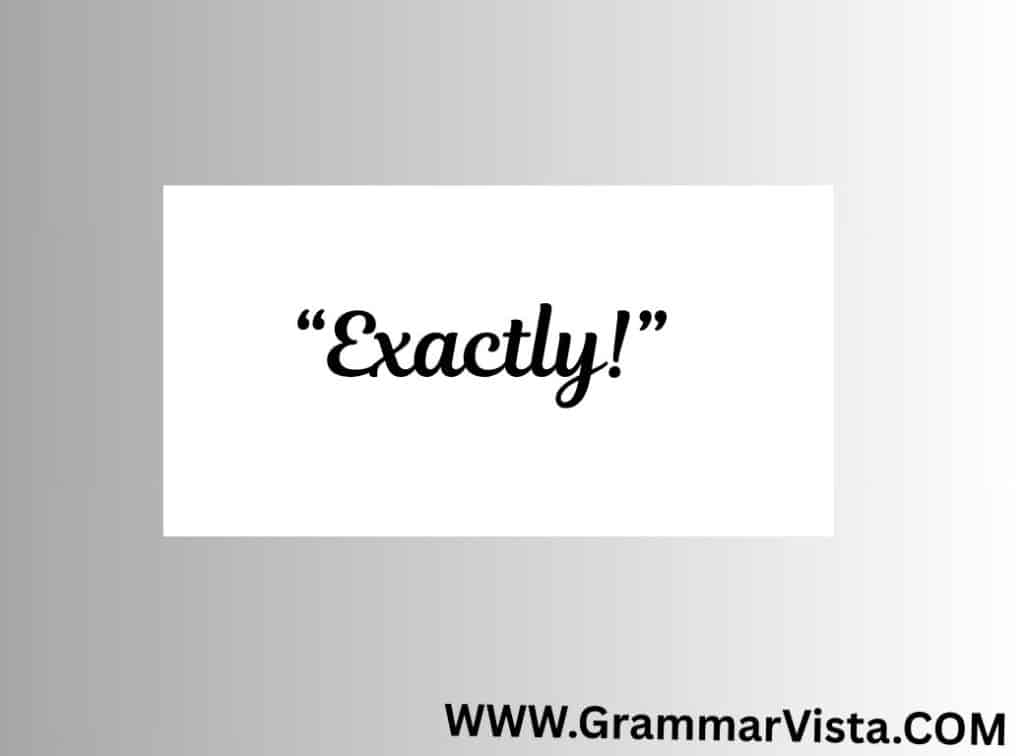
Example: If someone asserts, “Honesty is the foundation of trust,” replying with “Exactly!” immediately reinforces the importance of that sentiment without unnecessary elaboration.
I’m in complete agreement.
Meaning/Explanation: When you say, “I’m in complete agreement,” you’re not just nodding along; you’re signaling total alignment with someone else’s perspective. This phrase carries weight, especially in professional discussions where clarity and assurance are paramount. It demonstrates that you understand the other person’s viewpoint and also fully endorse it, fostering a collaborative atmosphere.
Example: In a team meeting discussing project strategies, stating, “I’m in complete agreement with your approach to client outreach” can encourage further dialogue and innovation.
I think you’re spot on.
Meaning/Explanation: When someone expresses a viewpoint that resonates with you, saying “I think you’re spot on” conveys agreement and also highlights your recognition of their insight. This phrase serves as an affirmation of their perspective, suggesting that you’ve taken the time to consider their thoughts and find them valid. These expressions of agreement validate others’ thoughts and also cultivate deeper connections in both personal and professional dialogues.
Example: If a colleague shares their strategy for improving team productivity, responding with this phrase can foster a collaborative environment where ideas flow freely, reinforcing the notion that diverse opinions are valued.
You hit the nail on the head.
Meaning/Explanation: When someone articulates a thought so precisely that it resonates deeply, saying, “You hit the nail on the head” encapsulates that admiration. This phrase emphasizes that the person has captured the exact point, acknowledging their clarity and insight. Using this expression invites deeper dialogue, encouraging others to build on the shared understanding. It creates a dynamic where ideas can flourish, and people feel valued for their input.
Example: If a colleague offers a solution to a persistent problem in a meeting, responding with this phrase affirms their contribution and also fosters an environment of collaboration and respect.
I get that.
Meaning/Explanation: When you say “I get that,” you’re not just nodding along; you’re expressing that you agree and also truly understand where they’re coming from. It acknowledges the speaker’s feelings and perspectives, which fosters a deeper connection.
Best used in conversations where empathy is crucial, this phrase helps create a supportive environment. It’s particularly effective in personal discussions or team settings, where emotional intelligence plays a key role in building rapport.

Example: If a colleague mentions the challenges of balancing work and life, saying “I get that” can validate their struggle while also opening the door for further dialogue about solutions or shared experiences.
Couldn’t have said it better myself.
Meaning/Explanation: This phrase is a delightful expression that conveys deep agreement, implying that the other person’s statement is so accurate that you wouldn’t change a thing. This phrase validates their thoughts and fosters a sense of camaraderie and mutual respect in the conversation. Best used in informal settings, this phrase enhances the connection between participants by signaling that you are on the same wavelength. It creates an atmosphere where ideas can flow freely, encouraging open discussions and collaborative thinking.
Example: If someone articulates the importance of listening in a dialogue, your response could emphasize how much you resonate with that sentiment, highlighting the value of both speaking and listening.
I feel the same way.
Meaning/Explanation: When you say, “I feel the same way,” you’re not merely nodding along; you’re expressing a profound connection that transcends simple agreement. This phrase conveys identical feelings or thoughts on a topic, suggesting that your sentiments resonate deeply with the other person’s perspective. It creates a sense of camaraderie and understanding, fostering an environment where open dialogue can flourish.
Example: In a discussion about environmental sustainability, if someone passionately advocates for reducing plastic use, responding with, “I feel the same way,” affirms their stance and also reinforces your shared commitment to the cause. This phrase invites further conversation and allows both parties to explore the nuances of their shared beliefs, ultimately enriching the dialogue with more depth and insight.
That’s exactly how I feel.
Meaning/Explanation: It’s an affirmation of a shared emotional or personal viewpoint that deepens the connection between individuals. When you express this sentiment, you’re validating the other person’s thoughts and also revealing your own vulnerability and openness. This phrase acts as a bridge, linking your perspectives while fostering a sense of camaraderie. It signals that you’re on the same wavelength, which can be particularly powerful in both personal and professional settings.
Example: If someone says, “I think authenticity is key in relationships,” responding with, “That’s exactly how I feel,” reinforces a mutual understanding that can lead to more profound discussions about trust and honesty.
Preach!
Meaning/Explanation: “Preach!” is an enthusiastic way to show agreement that goes beyond mere acknowledgment; it transforms a simple nod into a rallying cry. When someone expresses a thought or opinion that resonates deeply, exclaiming “Preach!” affirms their perspective and also elevates it, suggesting that their words hold a truth that deserves to be amplified. This phrase has its roots in passionate discussions, often heard in casual settings where people are genuinely excited about the topic at hand.
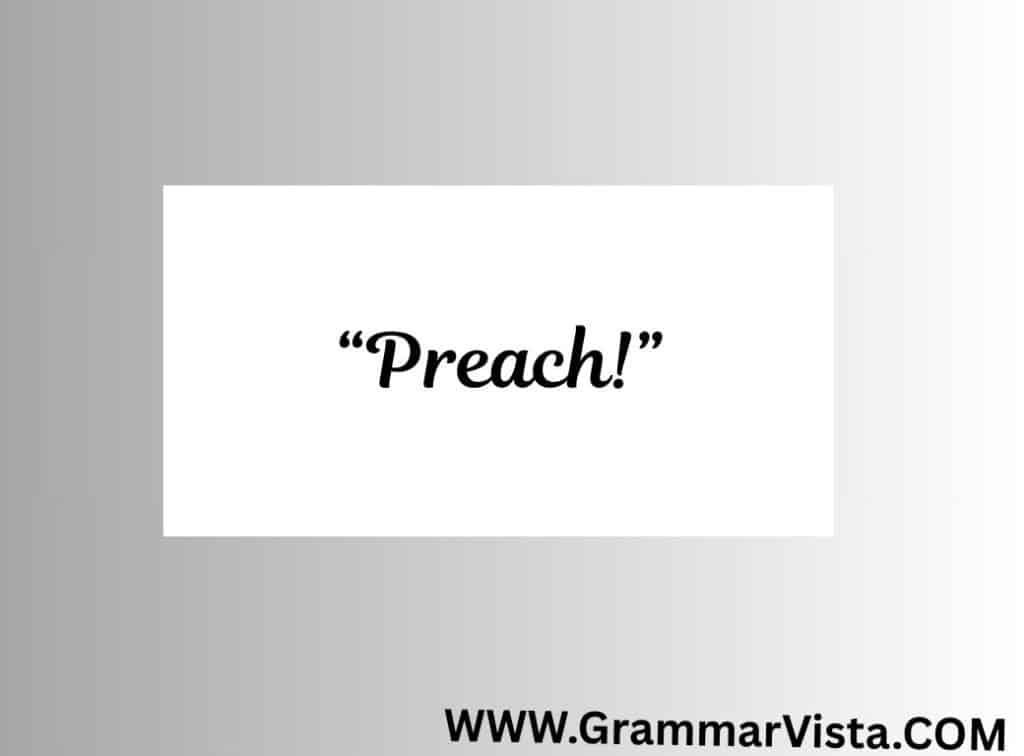
Example: Imagine a friend passionately discussing the importance of self-care; instead of just saying “I agree,” responding with “Preach!” adds an electric energy to the conversation. It encourages them to continue sharing their insights and fosters a dynamic exchange of ideas. By using this vibrant expression, you invite others into a space of mutual enthusiasm, reinforcing the notion that their thoughts are not just valid but worthy of celebration.
I’m all for it.
Meaning/Explanation: When someone expresses an idea that resonates with you, saying “I’m all for it” conveys not just agreement but also a sense of complete support and enthusiasm for the proposal. This phrase goes beyond mere acknowledgment; it communicates your eagerness to get behind the idea and contribute actively. Using this expression can transform the dynamics of a conversation, encouraging others to share their thoughts more freely.
Example: If a colleague suggests organizing a team-building event, responding with “I’m all for it” shows your approval and also sets a positive tone for collaboration.
Yes, I agree.
Meaning/Explanation: “Yes, I agree.” This simple but enthusiastic agreement is a powerful way to affirm someone else’s point of view without any ambiguity. It conveys your alignment and also an eagerness to move forward together. Such straightforward affirmations can foster a more collaborative atmosphere in discussions. When people feel their opinions are met with enthusiasm, they are more likely to engage openly, leading to richer conversations.
Example: If a colleague suggests, “We should prioritize customer feedback to enhance our product,” responding with, “Yes, I agree,” reinforces that you value their insights and are committed to the collective goal.
Right on.
Meaning/Explanation: “Right on” serves as a casual affirmation that expresses shared enthusiasm or belief, making it a great choice for informal conversations. This phrase conveys agreement captures an energetic vibe that can invigorate discussions. When you say “right on,” you’re not just nodding along; you’re actively celebrating the idea at hand, reinforcing a sense of camaraderie with your conversational partner.
Example: If someone passionately states, “We need more nature in our lives,” responding with “Right on!” elevates the dialogue, turning it into a shared rallying cry for environmental appreciation. It’s a simple yet powerful way to show that you’re not just passively agreeing, but fully invested in the sentiment being expressed.
Conclusion
To sum up, finding diverse ways to say “I agree with you” can significantly elevate your conversational skills. Options like “I couldn’t have said it better myself” or “You’re absolutely right” allow for a more personalized touch in your interactions. These alternatives can foster a more collaborative atmosphere and make your conversations more enjoyable. As you practice these expressions, you may find that they strengthen your relationships and also encourage deeper discussions. Don’t hesitate to try out these phrases the next time you’re in a conversation — you might just be surprised by the positive responses you receive!

